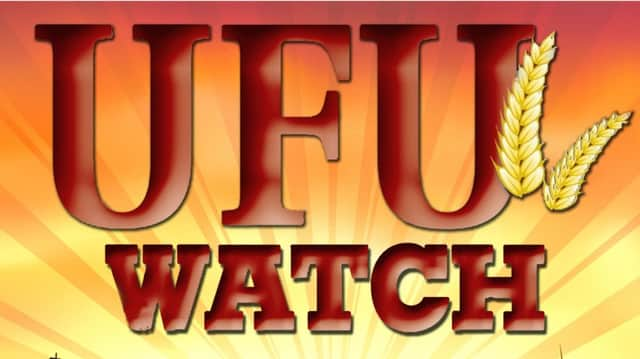Poor ear tag quality costs NI farmers over £700,000 per year


In order to investigate these concerns, DARD commissioned a study through AFBI to investigate cattle identification tag retention. The study, which looked at tag retention of 379,479 cattle born in 2007 indicated that on average 18% of the cattle had lost at least one identification tag over a six year period. Furthermore, the study revealed a cumulative loss rate of 4% of tags per each year of the animal’s life.
Upon learning of the results of this study, the UFU requested information from DAERA detailing the number of cattle needing an ear tag replaced and the total number of replacement ear tags ordered per year for 2013, 2014 and 2015 (Table 1).
Advertisement
Advertisement
As can be seen from the figures in Table 1, each year roughly 11-12% of NI cattle have at least one ear tag replaced with the number of replacement tags ordered ranging from 213,000 to 230,000. Assuming an average replacement tag cost of £3.25 per tag (excluding VAT), this suggests that farmers in Northern Ireland are spending in excess of £700,000 per year to replace identification tags to properly ensure full animal traceability.
In addition to the cost of replacing tags, the process involved in retagging cattle can be extremely labour intensive. As an example, an average beef herd of 17 cattle kept outdoor during the summer months may take two or three people over an hour to round up and bring in to adequate handling facilities in order for the animal to be safely retagged.
Additionally, the farmer will have to spend around an hour going to order and purchase the replacement tag and a further hour moving the animals back out to the field. Using the Agricultural Wages Board values as a reference (which values a farm manager’s time at £9.53 per hour and a standard worker’s time at £7.05 per hour), the cost to the business in this particular example could be as high as £60 for one missing tag. This is without considering costs associated with loss of thrive or the risk of injury to the animal or the farmer.
In order to minimise costs, stress and the risk of injury, farmers tend to complete retagging at practical times of the year (usually coinciding with a TB test or whenever the animals are housed). However, members have repeatedly expressed concern that inevitably this results in one or more animals having lost both identification tags simultaneously.
Advertisement
Advertisement
In this eventuality, the farmer is forced to inspect every animal individually to ascertain which tag is missing from the herd list or pay between £100 and £320 to DNA test the animal to match its identity to the dam or sibling. This process can be extremely challenging, especially considering that whilst the average beef farm in NI has 17 cattle, there are over 4,700 farms with over 100 cattle and 878 farms with over 300 cattle. As one can imagine, inspecting each of these animals individually can be an extremely frustrating and costly endeavour which adds significant work to a farmer’s already busy schedule.
In light of these concerns, in the short term the UFU has requested that DAERA amends internal policy to allow farmers the option of using a single metal identification tag as an approved secondary identification tag. This option is already available to farmers in Great Britain under DEFRA and older farmers in NI who have previous experience with metal tags report that these tags are significantly more durable. In the opinion of the UFU, this measure has the potential to halve the number of ear tags lost.
Furthermore it would significantly reduce the likelihood of animals losing both identification tags simultaneously thereby improving animal traceability. In the medium term, the UFU is encouraging tag manufacturers and DAERA to develop and approve a metal ear tag that can incorporate cattle electronic identification technology.
The UFU would like to see this combined with the development and approval of a primary identification tag that has the capability to take an ear notch sample which can provide material for both disease surveillance and DNA sampling.
Advertisement
Advertisement
The UFU believes that the development and incorporation of this technology would substantially benefit farmers, vets, retailers, and customers as more information about each animal could be easily recorded and utilised thereby enabling improved traceability and genetic improvement within the industry.